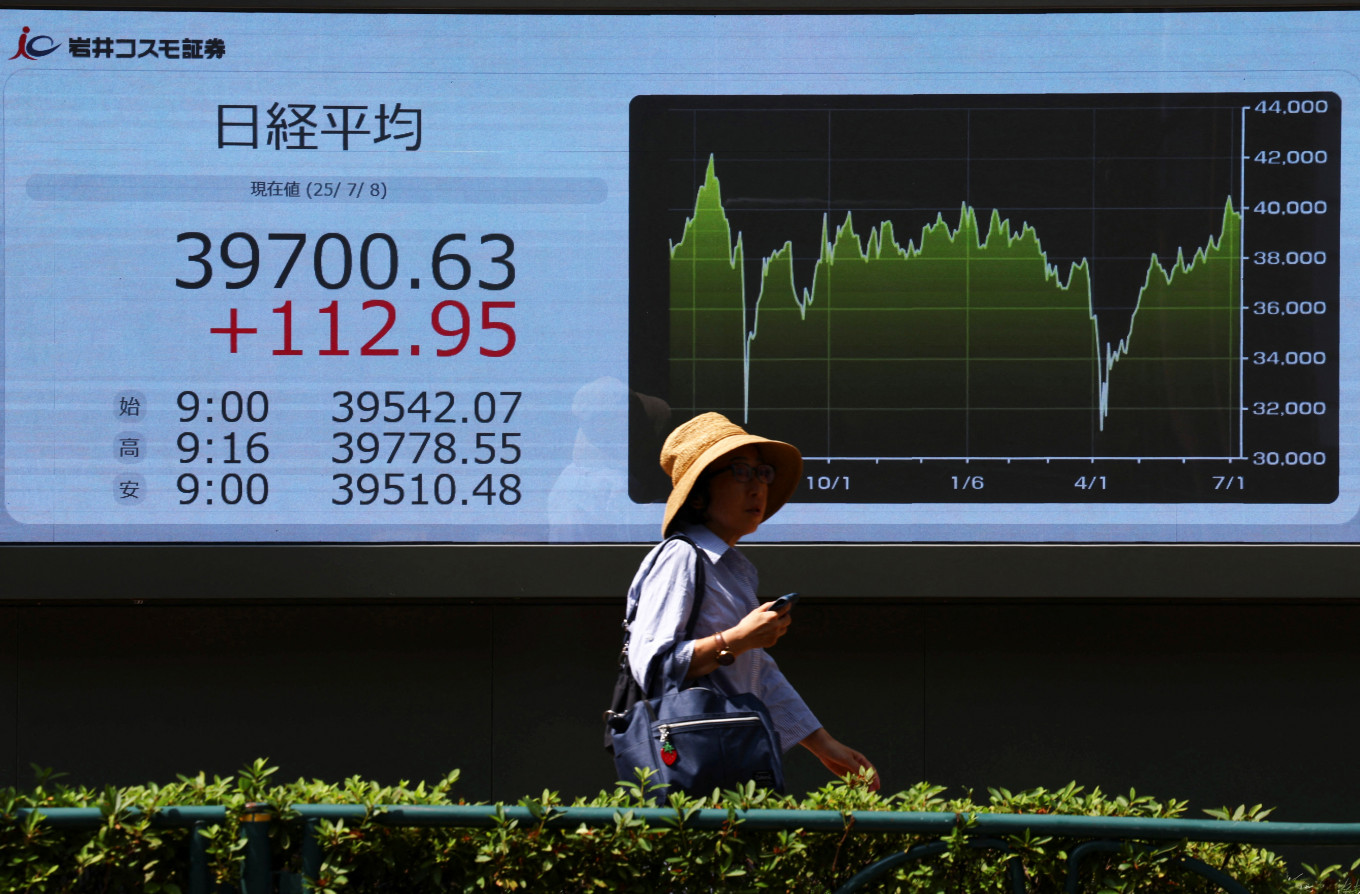Popular Reads
Top Results
Can't find what you're looking for?
View all search resultsPopular Reads
Top Results
Can't find what you're looking for?
View all search resultsStock futures dip after Trump slaps tariffs on Canada; dollar gains
Change text size
Gift Premium Articles
to Anyone
U
S and European stock futures dipped in Asia on Friday after President Donald Trump stepped up tariff threats against Europe and Canada, restraining an early rally in regional share markets.
The dollar gained on the euro and the Canadian currency as Trump issued a letter late on Thursday that a 35 percent tariff rate on all imports from Canada would apply from August 1, adding the European Union would receive a letter by Friday.
The US president, whose global wave of tariffs has upended businesses and policymaking, floated a blanket 15 percent or 20 percent tariff rate on other countries, a step up from the current 10 percent baseline rate.
Both Nasdaq futures and S&P 500 futures fell about 0.4 percent. EUROSTOXX 50 futures also dropped 0.4 percent.
The euro slipped 0.2 percent to $1.1676, while the dollar gained 0.3 percent to C$1.3695.
Earlier in the week, Trump pushed back his tariff deadline of July 9 to August 1 for many trading partners to allow more time for negotiations, but broadened his trade war, setting new rates for a number of countries, including allies Japan and South Korea, along with a 50 percent tariff on copper.
Joseph Capurso, head of international economics at the Commonwealth Bank of Australia, said the tariff rate of 35 percent on Canada is not as bad as feared because most of the imports are still subject to exemptions under the United States-Mexico-Canada Agreement (USMCA).
"Now the tariff rate on imports from the EU [...] That's what we don't know as yet [...] The potential escalation between the EU and the US is a big deal for financial markets," said Capurso.
"If you get something similar to (the US-China trade war in April), that's going to be very destabilizing."
Overnight, Wall Street indexes rose modestly but posted record closing highs as chip giant Nvidia made history with a closing market valuation above $4 trillion.
The MSCI's broadest index of Asia-Pacific shares outside Japan wobbled but was last up 0.5 percent on Friday. That brought the weekly gain to 0.7 percent.
Tokyo's Nikkei reversed earlier gains to be off 0.1 percent, and is set for a weekly drop of 0.6 percent. It was dragged lower by an almost 7 percent drop in shares of Uniqlo owner Fast Retailing after it warned of a significant tariff impact.
China's blue chips rose 0.5 percent, while Hong Kong's Hang Seng index rallied 1.3 percent.
Investors are gearing up for second-quarter US corporate earnings next week to gauge the impact of Trump's trade war launched with his "reciprocal" tariff announcement on April 2. JPMorgan Chase is due to release results on Tuesday, essentially kicking off the reporting period.
In Treasury markets, moves were muted in Asia. Benchmark 10-year US Treasury yields rose 1 basis point to 4.3577 percent, having edged up a tiny bit overnight after data showed jobless claims unexpectedly fell last week.
Oil prices rose after losing 2 percent overnight. Brent crude futures gained 0.6 percent to $69.06 a barrel, having lost 2.2 percent a day earlier.
US West Texas Intermediate crude was up 0.7 percent at $67.05 a barrel.
Spot gold rose 0.2 percent to $3,329 an ounce.











